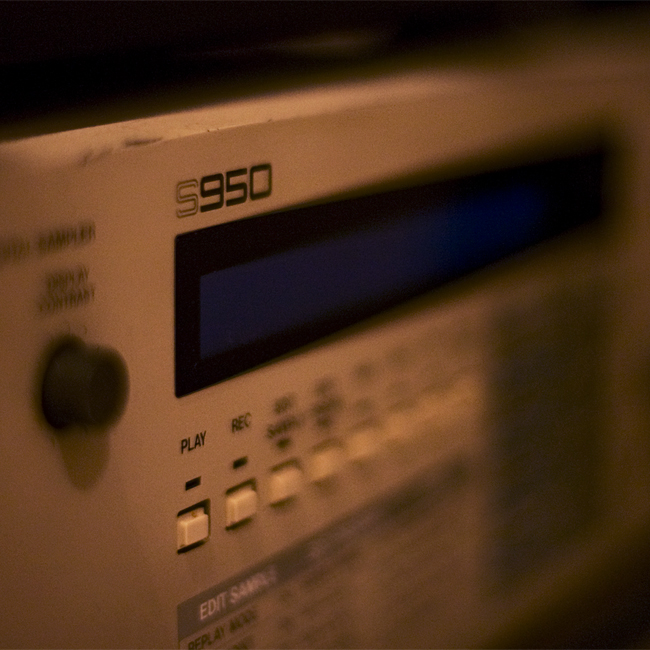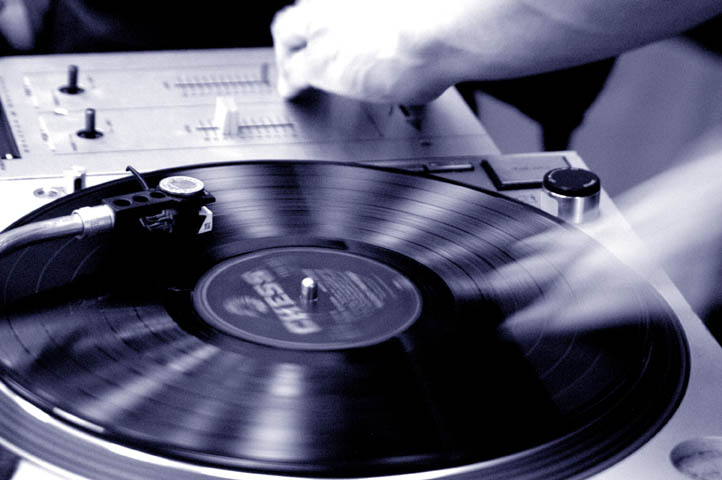I’ve always considered myself a sucker around this time in December for reading blog posts across various industries that predict what is going to happen in the following year, both good and bad. In a similar fashion, here are nine different things I anticipate happening in the world of dance and electronic music in 2011. Now, these don’t necessarily reflect things I do or do NOT want to happen, but they are merely based on my personal observations. At the end of 2011, I am going to try doing a follow-up piece to reflect on how accurate these predictions actually are!
So without further ado, here are my 9 predictions for the world dance and electronic music in 2011.
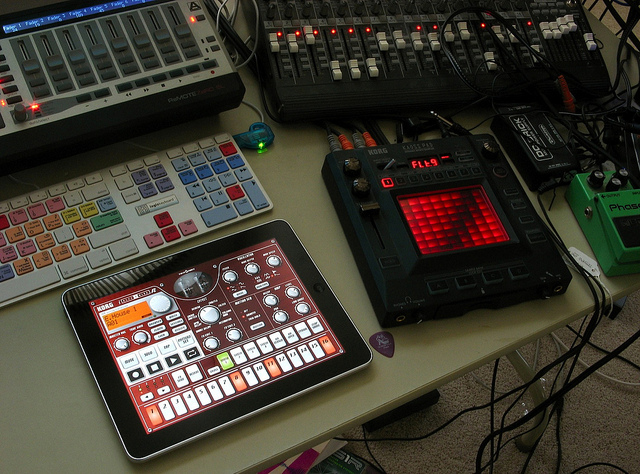
- An iPad App will be released by at least one major software DAW manufacturer.
As predicted by many people a year ago when first announced, the iPad has opened the floodgates for live performance and audio production. Right now the majority of its music-based apps are either one-trick ponies (basic drum machines and synths) or are designed to wirelessly control a DAW running on another computer (touch OSC, Grid, etc).
This leaves a giant opportunity for a popular DAW manufacturer to develop a modified version of whatever their flagship program is exclusively for the iPad. It would not surprise me if Ableton or Apple’s own Logic are the first ones to the finish line, but I have no doubts that many developers are working frantically to port their DAW’s over to the highly popular tablet.
Either way, I predict there will be at least one reasonably priced app, modified from a popular DAW, that will make its way to the iPad.
It is estimated that Apple has sold upwards of 6 million iPads in 2010, one-third of this being in the first month after launch alone. If the iPad shares anything in common with the iPhone in its second year sales-wise, expect it to be significantly higher in 2011. - Increased demand for vintage samplers
This prediction is sort of interesting because of what I see trending currently. For the past several years, producers have been shelling out big bucks to scoop up any vintage synthesizers they can get their hands on. Despite the popularity of software synths, these gear-heads are looking for other ways to inject authentic sounds into their work, which a vintage Juno or RX-7 can provide. Prices for some have been skyrocketing.
Recent waves of electronic music have been extracting bits and pieces of the house, techno, even jungle, consolidating them all under one single roof. There seems to be a big interest in creatively working with large libraries of sampled material once again. Many producers are trying to re-create the same vibe that many classic songs from the early 1990s had, and in this case, synths can often take a back seat to samplers.
Although Akai’s original MPC series will always command a fortune on the second-hand market, I can see other samplers, such as the S-950 and S-1000, enjoying a small resurgence over the coming months.
Obviously even today’s most basic DAW’s can run circles around an old-school sampler in the name of both features as well as functionality. Similar to early synthesizers, however, these hardware samplers inject an authentic (and often lo-fi) sound that is difficult to re-create on the software side of the equation. Forget about hooking one up directly to a computer though, as most models came out long before USB was even a concept; only a select few even had SCSI capabilities for that matter. Routing RCA cables directly to your mixer/soundcard and triggering the samples via a MIDI keyboard hooked up through the sampler is a snap though. - A BIG year for Ableton and Soundcloud
Ableton and Soundcloud have both gained massive ground in the past two years, but I think 2011 is going to prove an even more successful year than ever before for both companies.
Two years following Ableton’s release of Live 8, there is a great deal of speculation on what they could have up their sleeves. They have worked out many of the kinks in Live 8, as well as unleashed their Bridge partnership with Serato, over the past year.
I not only predict that Bridge will become massively popular in the DJ world, but we will see a new version of Live sometime in 2011 as well.
What might Live 9 have in store for us? Support for 64-bit processors will probably be the name of the game. I also wouldn’t be surprised to see plenty of minor yet practical advancements, such as Bezier curves for automation envelopes, better reverb filters, and hopefully revisiting the “share” feature to collaborate on projects remotely with other users (which was supposed to be implemented in Live 8, but binned shortly after its release). I’m also betting on seeing another instrument to be bundled with the Suite, probably one that was either heavily influenced by a Max4Live instrument, or Reason (hehe).
Meanwhile, in the other corner, Soundcloud has taken the torch passed on to them from MySpace in the name of independent music promotion via Web 2.0. They are now essentially the aural version of what Flickr is for photography.
In the coming year, I would not be surprised to find musical content becoming more search-optimized than ever before: similar to YouTube, it will become tailored to your interests, preferences, and listening history. Expect tighter integration with their official and third-party mobile apps, as well as with every social platform under the sun. I also predict a podcasting feature to be introduced (something I’ve always thought they could greatly benefit from). And even though the core user-base is still electronic and dance music, I expect to see a wide array of rock, indie, and hip hop artists getting on the bandwagon as well. This will DEFINITELY help the ‘Cloud rise to a whole new level of popularity. - More “Vinyl-Only” themed nights
I’ve seen nights like this already start popping up around New England. I think it’s a bit of a gimmick, but the nostalgic value seems to appeal to the elder generation of dance music fans, as well as curious youngsters. Parties, where only vinyl is played, expose people to a variety of lost and long-forgotten musical gems from years ago, giving them a chance to hear music they don’t normally get to hear daily.
And speaking of vinyl, I think that sales of it will more-or-less remain the same next year. Maybe slightly higher if the economy finally improves. - The further merging of different genres, and continued dominance of dubstep
Superstar DJs such as Diplo and the late DJ AM brought multi-genre sets and styles of music to the spotlight during the latter half of the ‘noughties. Expect to see the walls between different genres come down even further in 2011. House is working its way into UK Garage and Funky, Techno is working its way into Dubstep, even the frantic breakbeats of Drum and Bass merging into a wide array of slower-tempo styles. DJs will incorporate multiple styles, even tempos, into single sets. And to think that ten years ago, producers and DJs who catered to more than a single style were frowned upon!
And there is little more to say about Dubstep than the fact that it will be enjoying another prosperous year in 2011. With the rulebook to the genre still pretty much unwritten, it continues to be appealing to producers who enjoy the creative freedom of being able to inject a wide palette of sounds into it. This certainly won’t last forever, but dubstep has plenty of life left in it. - More artists will release music on their own
With digital DJ-ing becoming the norm in 2011, the playing field has been leveled between long-established record labels and young, independent artists who know a thing or two about self-promotion and distribution. Over the course of 2011, it will become more widely accepted that you do not essentially need to be signed on a record label to get recognition for your music.
Now do not think for a SECOND that this will make it easier for budding producers to get their work out to the masses. It’s going to be just as, if not more, difficult than ever before to build a following of listeners. This is especially true with the barrier of entry to become a producer and build a brand being decimated, and the signal-to-noise ratio of the content on the Internet is at its pinnacle.
If an artist wants to take this route, they will have to play the role of the marketer, blogger, PR spokesperson, and then some, in addition to crafting music that people want. However, it is no longer next-to-impossible to become self-made if you are willing to work your rear end off to get there.
Record labels are not going away any time soon, but I do perceive their role to become diminished over the following year. The ones who thrive are the ones who can help nurture the careers of the artists they are signed to and utilize every social media channel possible to keep their fanbase interested in the products and services they provide. - Every DJ will perform on unique equipment
What has made DJ-ing interesting nowadays is technology. You no longer have to shell out a tenner for a 12″ single, or even go to the record store for that matter. Researching which tracks work on the floor in a specific environment is a breeze. Plus, with hosts of MIDI controllers, along with different mediums (vinyl, CD’s, MP3 via a laptop, etc.), every DJ plays on a slightly different configuration.
In 2011, it will become the norm for every DJ to be playing on both a platform and medium different than the DJ playing either before, or after, her/him. - More stems and remix projects made open to the public
Remix contests are a great way for established producers to engage with their fans and allow them to re-interpret their work. I can even see many older producers holding remix contests for classic songs they penned in the 1990s as a way to bring in new fans. They are a great way for newer producers to establish themselves, and holding these contests via Soundcloud has proven to be successful for many already.
Some have begun making their stems of their tracks available online as well for DJs to work with, but it’s still a grey area in which the waters haven’t been tested much. I wouldn’t be surprised to see more producers releasing stems and components of their released tracks for mass consumption over the coming year. - The death of the pre-recorded DJ studio mix
Traditionally, the intention of the DJ was not only to expose listeners to new or different music but to also send them on a musical “journey” over the duration of their set (which was often hand distributed on CDs or cassette tapes). I have witnessed this role change completely during the past decade.
Many listeners nowadays tend to poke through mixes they find online to preview just a few specific songs, and no longer have the time to sit through and digest the whole thing. The DJ mix is no longer a linear, start-to-end listening experience. This could be due to the easy access of sets on the Internet, the overall democratization of music that Web 2.0 has made possible, or even shorter attention spans. Regardless, the original journey the DJ prescribed has been lost in translation.
People seem to only want to listen to pre-recorded mixes to hear select works of the producers, not the collective work of the DJ.
I honestly wish I could say that the situation is different. As a DJ myself, I enjoy creating mixes that tell a story or build progressively over time. I also like listening to other people’s mixes while I’m working or driving in the car. Hate to say it, but based on the lack of reaction I see when people (especially local or non-producing DJs) post their mixes online, I think I’m in the minority here.
Think of how many mixes get posted to Facebook, Soundcloud, and on various message board forums every day. The number is staggering! With all the clutter, it can be overwhelming for the average listener to even figure out how to start sifting through it all.
The need for a DJ to play music at an event will not be going away any time soon, but in 2011 they will have to find different avenues besides studio mixes to promote themselves and add value to the music community.
How can a DJ “add value”? The key is to not be afraid of experimentation. Consider blogging, or promoting music you enjoy across various social and mobile platforms. Have you thought of launching a record label or starting your own night? Always keep in mind that whatever you do, be sure that you are promoting the music you believe in.
Also, pre-recorded mixes carry far less weight when it comes down to how promoters handpick which DJs they want playing their events nowadays. What really matters to them is how a jock can perform on-the-spot in a live setting, how they engage the crowd, and the number of people they bring through the doors.
So there it is folks, my predictions for 2011. Feel free to weigh in with your own predictions, or if you have anything you want to discuss these thoughts!
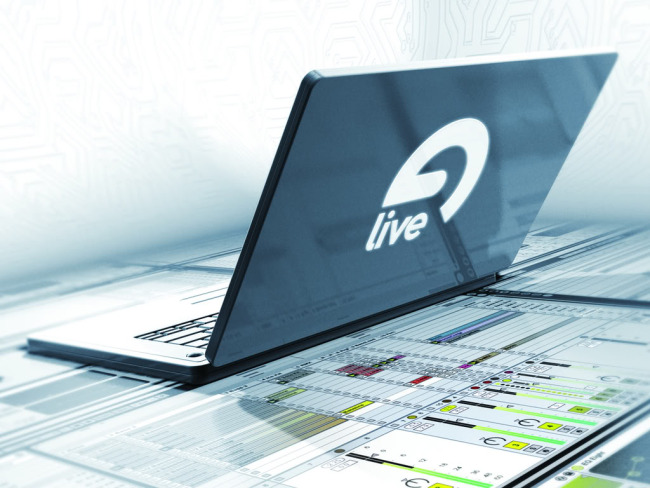

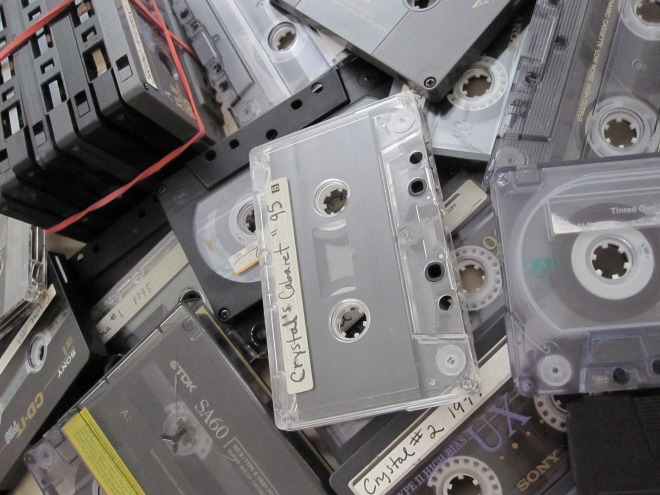
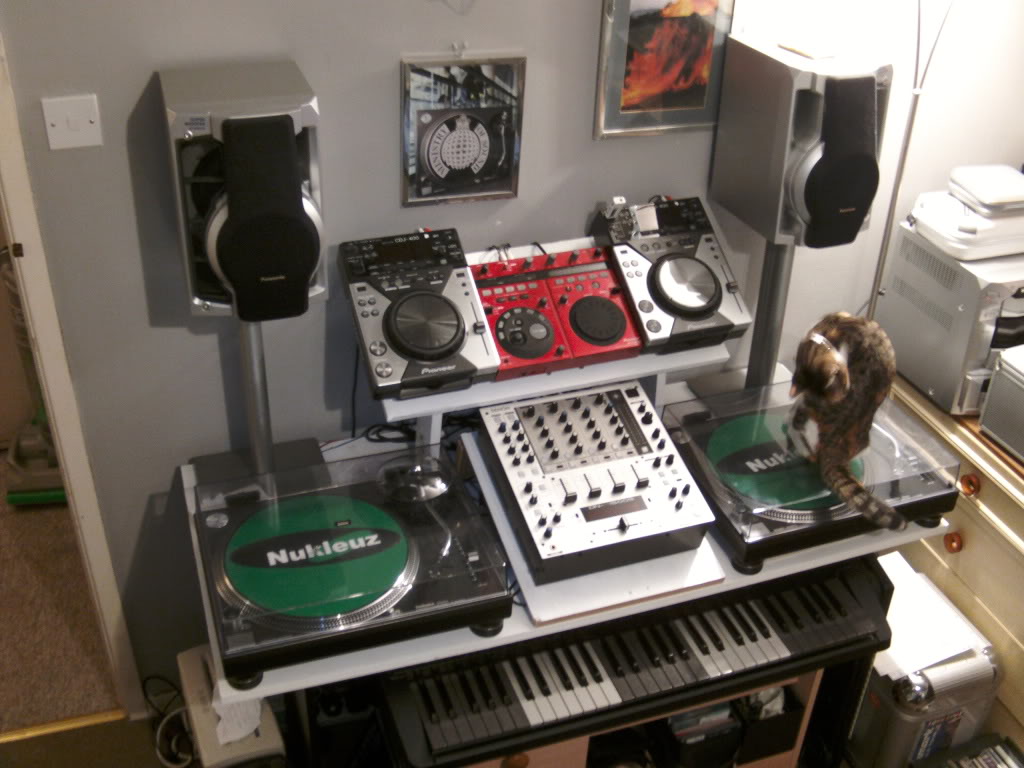
DCIM\100MEDIA 